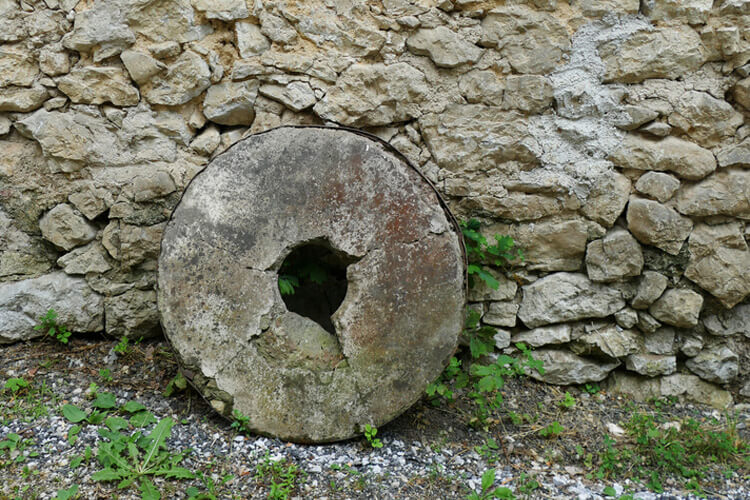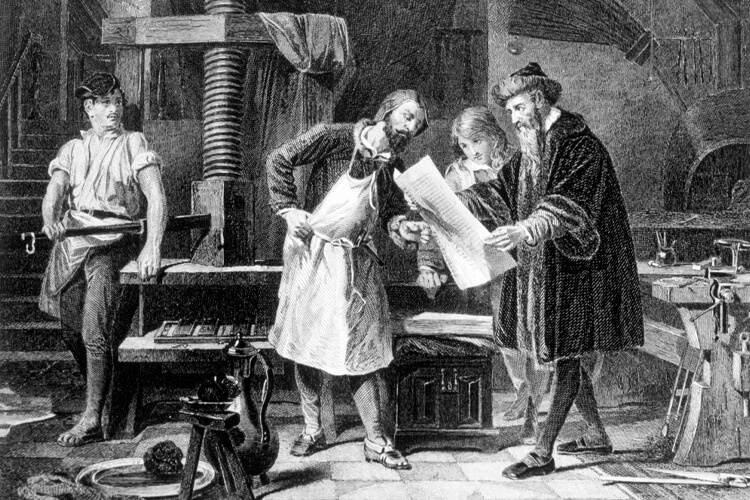1. The Wheel
So the saying goes, 'there's no need to reinvent the wheel'. This is a reference to the unrivaled importance of the invention in 3500 BC. Prior to this, humans were extremely limited when it came to transporting things over long distances. Inventing the wheel itself wasn't the tricky part - the wheel-and-axle concept was the real genius, which connected the rolling cylinder to a non-moving platform.
2. The Printing Press
Before the internet arrived, no invention did more for the spread of knowledge than Johannes Gutenberg's printing press in 1440 CE. An inventor from Mainz in Germany, Gutenberg improved on an already functioning machine by using a mold that allowed for the fast production of lead alloy pieces. By the year 1600, over 200 million books had been printed courtesy of Gutenberg's invention.
3. The Compass
A real turning point in nautical history, the compass changed everything for mariners across the globe. Prior to the invention of the compass, voyagers would rely on navigation by reading the stars, but this method was only possible at nighttime and when visibility was good. Invented by the Chinese between the 9th and 11th centuries, the first compass was made of lodestone - a naturally-magnetized iron ore.
4. Penicillin
No article about inventions that shaped human history would be complete without a mention of Penicillin. In 1928, Scottish scientist Alexander Fleming chanced upon mold in a Petri dish that appeared to kill the bacteria inside. That antibiotic mold would turn out to be Penicillin, which would be developed to successfully and effectively fight a huge number of infections in humans.
5. The Telephone
Another Scottish inventor, Alexander Graham Bell, patented the electric telephone in 1876. Drawing his inspiration from teaching the deaf and visits to his hearing-impaired mother, Bell's invention revolutionized global trade and communication. Today telecommunication is more important than ever, although it's unlikely that Bell would recognize today's telephones compared to his own inventions.
6. The Light Bulb
Thomas Edison is credited with inventing the light bulb in 1879, literally lighting up homes and offices across the world and offering an opportunity for productivity after dark never seen before. Not only did Edison's invention initiate the introduction of electricity into people's homes, but it also changed their sleeping patterns. Instead of going to bed at nightfall and rising with the sun, electric light bulbs allowed people to sleep and wake up at times convenient for them.
7. The Nail
An invention more than 2,000 years old, the first nail was developed during the Ancient Roman period. Once humans were able to cast and shape metal, these ingenious little tools became commonplace in construction and helped the Romans build their pioneering civilization. Iron nails were a staple all the way through to 1913, by which time 90% of nails produced in the US were made of steel wire.






